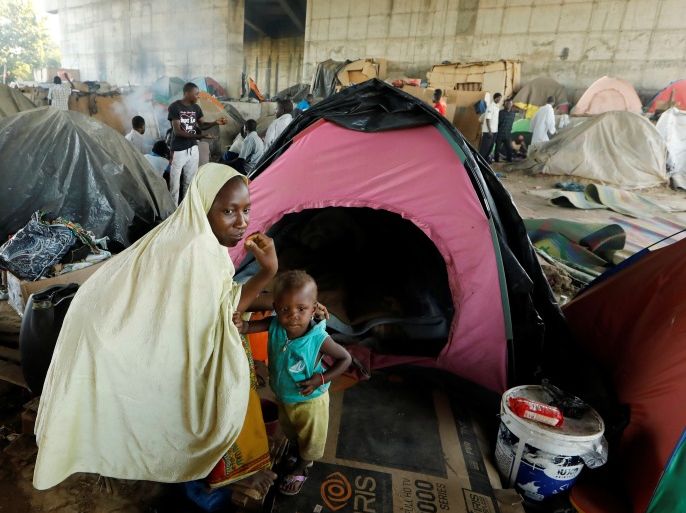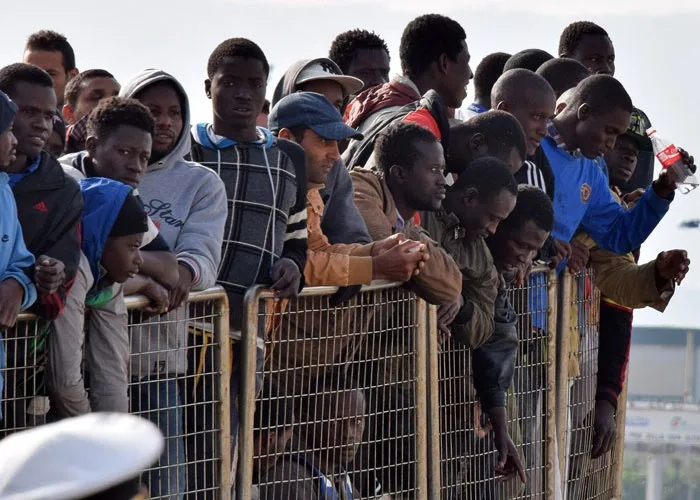Abdellah Mechnoune
Algeria is witnessing an alarming rise in racism against Black people, whether they are from the southern regions of the country or migrants from Sub-Saharan Africa. Despite the official discourse promoting equality and anti-discrimination policies, the reality reveals that this community continues to suffer from various forms of exclusion, both politically and socially. This raises fundamental questions about the roots of this phenomenon and its impact on social cohesion in Algeria.
In official institutions, the representation of Black Algerians in high-ranking positions remains very limited. Although figures like Abdelkader Messahel and Noureddine Bedoui have held significant roles, they remain exceptions rather than the norm. The appointment of Hassan Dardouri, for example, sparked racist reactions—not because of his qualifications but because of his skin color—highlighting the persistent perception of southern Algerians as inferior. In the military, one of the country’s most powerful institutions, Black representation is almost nonexistent, further deepening their sense of marginalization and reinforcing the idea that opportunities are not equally distributed.
Beyond institutional exclusion, Black Algerians, particularly those from the south, face blatant discrimination when they travel to northern cities. Many experience daily harassment, including verbal abuse due to their skin color and distinct accents. In universities, some southern students were required to undergo medical examinations before being allowed to access student housing—a measure not imposed on others. Such practices have discouraged many southern Algerians from settling in the north, fearing unfair treatment and a constant sense of alienation in their own country.
The media landscape is no different, as Black faces are conspicuously absent from television programs, as if they were not part of Algeria’s national identity. A striking example is the case of Algerian model and influencer Baraka Meraya, who broke down in tears after facing a wave of racist comments, exposing the extent of racial bullying faced by Black Algerians in public life. The lack of fair representation in the media reinforces negative stereotypes and perpetuates the idea that Black Algerians are marginalized, despite being among the country’s oldest ethnic groups.
Racism is not limited to southern Algerians; it also extends to Sub-Saharan African migrants, who are often perceived as a demographic threat or a burden. Many of them work in harsh conditions without legal protection and face widespread social rejection. In some cases, these migrants have been subjected to violent attacks and even killings, while the authorities have failed to take firm action to curb the growing hate speech against them.
Even abroad, some Algerians have carried these racist attitudes with them. A recent incident in Paris sparked outrage when an Algerian woman filmed the Moroccan pavilion at an agricultural exhibition and referred to the participants as a “bunch of Blacks.” Such behavior not only damages Algeria’s image on the international stage but also reflects a deeper problem regarding perceptions of diversity and social inclusion.

In contrast, neighboring Morocco appears to embrace a more inclusive approach to ethnic diversity. The country does not experience the same level of racial discrimination, and its culture integrates ethnic and linguistic diversity more naturally. This difference is not merely due to economic or geographical factors but also to social and cultural policies that have fostered pluralism and coexistence.
Historically, the roots of racism in Algeria date back to the colonial era when France attempted to implement a segregation system similar to apartheid in South Africa. Although Algeria gained independence, this mindset did not entirely disappear. It persists in certain institutions and within society, making racial discrimination widespread, even if it is not officially recognized. The paradox is that while the Algerian regime claims to defend the rights of southern Moroccans, it does not demonstrate the same commitment toward southern Algerians, who continue to suffer from exclusion and marginalization. This contradiction raises serious questions about the government’s sincerity regarding human rights.
The rise of racism in Algeria presents a significant challenge to building a more just and cohesive society. Addressing this issue requires collective awareness, legal reforms that ensure true equality for all citizens, and strict laws to criminalize discrimination in all its forms. Without these measures, Black Algerians will continue to face unjust obstacles in their own country, contradicting the fundamental principles of the Algerian Revolution, which aimed to eradicate all forms of injustice and oppression.









 English
English Español
Español Deutsch
Deutsch Français
Français العربية
العربية